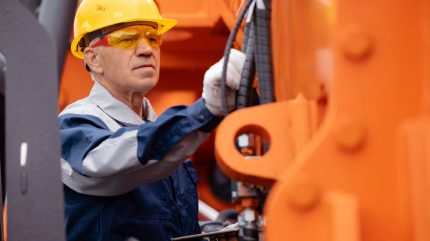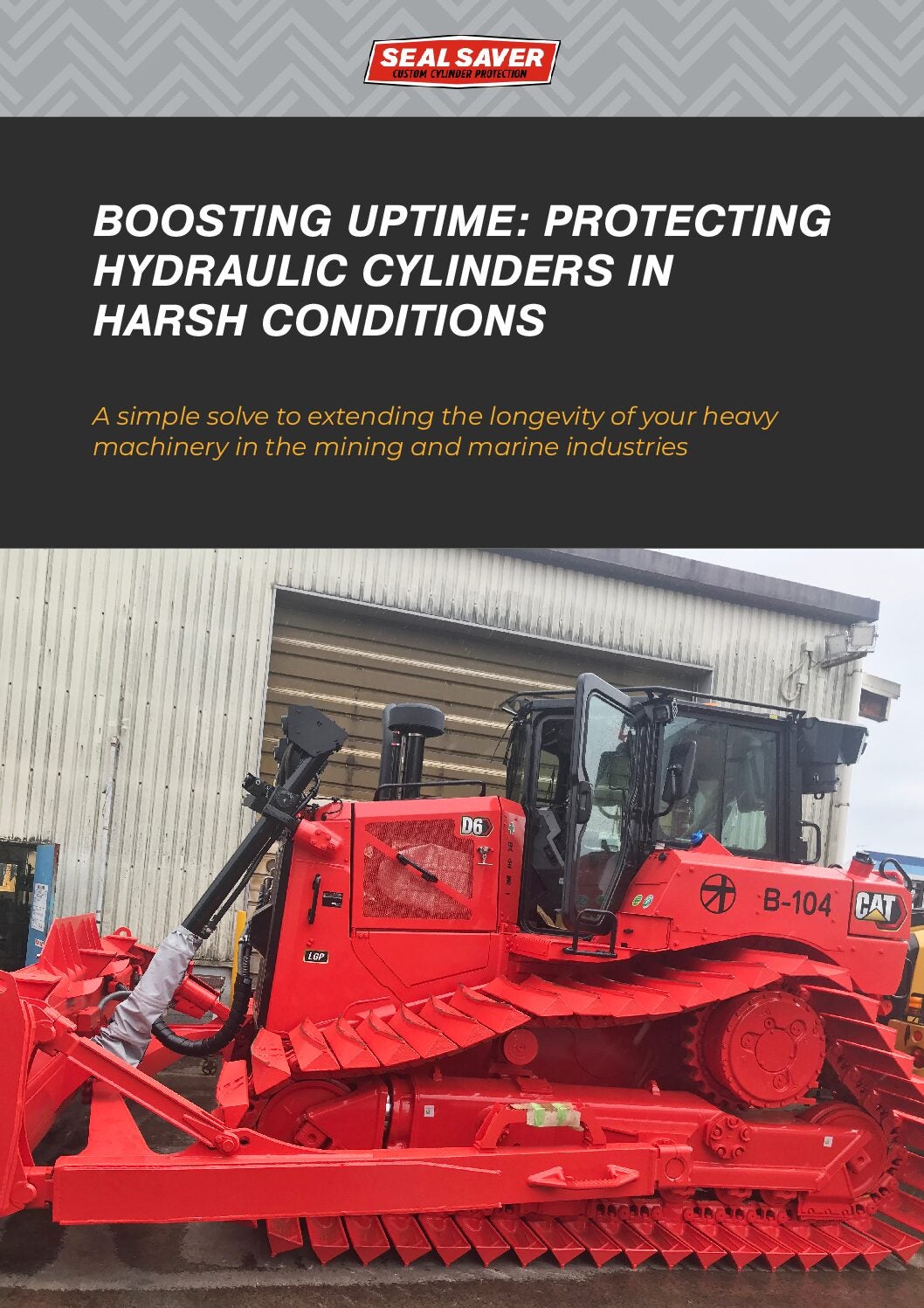
Rented machinery forms a significant proportion of the construction equipment in operation, with rental companies accounting for 33% of construction machinery purchases in North America. Furthermore, 84% of construction companies in the US rent their equipment.The appeal of this model provides construction companies with the flexibility to procure machinery based on the needs of specific projects.
Though designed to be rugged and durable, construction machinery can quickly degrade in the harsh operational environments. Owners must keep their equipment in top condition with regular maintenance and timely repairs. Hydraulic systems are widely used in the heavy machinery of the construction industry thanks to their smooth and powerful functionality. However, these vital systems need extra attention. Damage to hydraulics is easily caused and expensive to rectify, with a hydraulic cylinder for a mid-size excavator costing between $5,000 and $15,000 to replace.
“Cylinders can get damaged from constant contact with rocks and debris,” says Leigh Carlson, CEO of Fluid Control Services, a company producing cost-effective and durable safeguarding products for heavy industries such as construction.
When foreign matter such as dirt, grit and water breaches the seals of hydraulic cylinders, it infiltrates and contaminates the hydraulic fluid, which can damage crucial pumps and valves. “Hydraulic cylinders, a critical component of industrial machinery, are particularly vulnerable to environmental damage, which can impact productivity and profitability,” states Carlson.
Managing heavier loads on construction rental equipment
There are further pressures on the owners of rental plant machinery. The nature of the business model means the same machine is operated by different people. At times, the renter of the equipment may not fully absorb the mandatory training on the operation and handling of the machine. As a result, hydraulic systems of construction machinery can be subjected to improper handling and experience more wear and tear from forceful usage, along with lifting loads that exceed the designated capacity.
This can put the equipment out of action and shorten its lifespan. Prudent owners of rental machinery are advised to take preventative measures, avoiding expensive downtime.
“Downtime can be costly if rental companies need to disassemble and replace hydraulic cylinders,” says Carlson. One preventative measure is the installation of the Seal Saver, a protective boot produced by Fluid Control Services, a lightweight, flexible covering that encapsulates the cylinder rods of hydraulic systems.
Actions to prevent downtime of construction equipment
The Seal Saver solution is designed to prevent cylinder damage, significantly reducing the frequency of repairs. Of particular benefit to construction equipment rental companies is the easy installation process with minimal downtime. Installation can take place in as little as 15 minutes with just a screwdriver during routine maintenance. In addition, putting on the Seal Saver does not require the disassembly of the hydraulic cylinder.
Another advantage for rental companies is the customisable nature of the Seal Saver, making it an optimal solution for rental fleets comprised of various machines designated for different construction environments and projects. Though typically made of ballistic nylon, which is highly durable and resistant to dirt and abrasions, the Seal Saver can also be constructed from Kevlar or silica-coated cloth for more challenging environments. These materials offer increased resistance to chemicals and extreme heat.
The upside is clear. In mining operations, for example, the Seal Saver solution can extend the life of hydraulic cylinders by up to three times, with the boot itself having a lifespan of ten years or more. Given the price of a Seal Saver for a mid-size excavator is between $500 and $1,000, the protective boot offers considerable value.
Protecting construction equipment constantly exposed to dust, dirt and debris is essential from a cost and operational standpoint. For rental companies, where the machines have a heavier workload due to being handled by different operators in various construction environments, the Seal Saver helps extend the life of equipment and reduce downtime. In a critical industry where performance is vital, the safeguarding offered by Seal Saver keeps timelines on track, the gears turning, and operations delivering.
Seal Saver technology can reduce the possibility of breakdowns and increase the longevity of your equipment. For more information, download the white paper here



